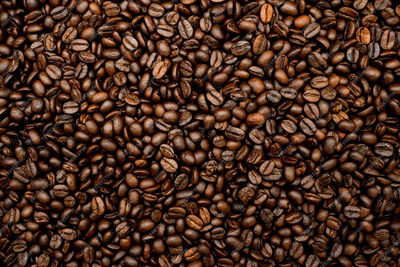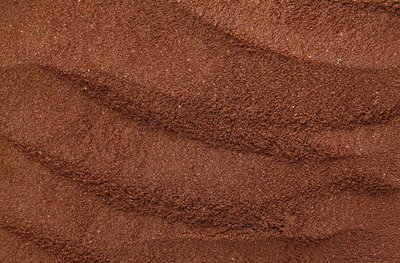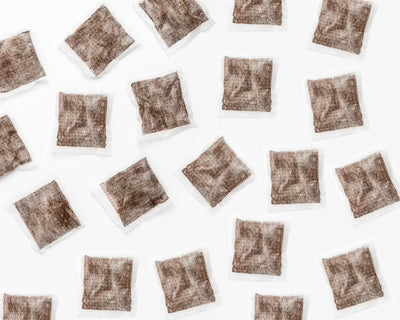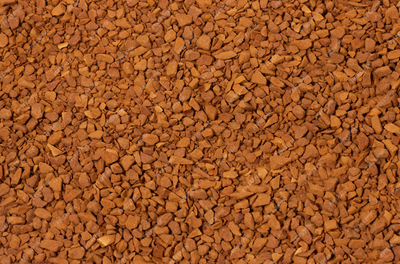Caffeine withdrawal headaches occur when a person who regularly takes caffeine abruptly stops or reduces their intake. Caffeine withdrawal headaches can be relieved by consuming caffeine. However, alternative home and over the counter medicines can also help to reduce caffeine withdrawal headaches or migraines.
Is a caffeine headache real? How to relieve symptoms
Yes, caffeine headaches are real. Caffeine headaches are triggered due to consuming too much caffeine. Reducing caffeine intake or completely stopping caffeine after consuming regularly can also trigger headaches in certain people.
People can help in relieving the symptoms of caffeine withdraw headaches by slowly reducing their regular caffeine intake over time. For instance, you can reduce your consumption of caffeine or take small amounts of caffeine for over a period of 6 weeks, gradually. According to some studies conducted in 2019, this helps in ensuring that you have minimal symptoms.
Another way to relieve the symptoms of caffeine withdrawal headache is to get plenty of sleep. Enough sleep helps in dealing with fatigue. It will also help in ensuring that your body does not depend on caffeine.
Staying hydrated is also another way to help treat symptoms related to caffeine headaches. Dehydration can lead to fatigue and cause you to experience withdrawal symptoms.
Caffeine headache symptoms can also be relieved by using over the counter medications such as Tylenol (acetaminophen), aspirin and ibuprofen (Advil). Medications that contain caffeine should not be used. Excedrin can also be used to ease symptoms of caffeine withdraw. Excedrin is a combination of acetaminophen, caffeine and aspirin, however, this type of medication contains caffeine and can therefore cause rebound headaches, particularly when used for a long time. Make sure that the OTC medications you take are medically reviewed and your doctor should be able to advise diagnosis or treatment.
Finally, you can also relieve the symptoms by finding acceptable replacements for caffeine. For example, you can cut back on caffeine intake by adding a small amount of decaf to your coffee per day. If you drink more than one cup of coffee every day, you can replace one cup with decaf. This will help your withdrawal symptoms to go away.
Caffeine can trigger a headache
The human body becomes dependent on the effects that caffeine provides when one consumes it consistently. Coffee causes the blood around the braid to become narrow. Once one completely stops or reduces caffeine intake, the vessels enlarge once again. This also leads to an increase in blood flow in the brain as well as to the pressure nerves. As a result, caffeine withdrawal headaches are triggered. This headache can even last for many days or weeks since the body still has to get used to not having caffeine.
Therefore, you need to take care of how much caffeine you take as well as the effects it has on you. You should also keep track of headaches and what helps to hinder these headaches. If your headaches are frequent, you should reduce your caffeine intake gradually.
Caffeine withdrawal headache location
Caffeine withdrawal headaches are characterized by pain and tension that radiates from the brain. It can travel to the front of your head from behind your eyes. Caffeine withdrawal headaches might include migraine-like symptoms as well as generalized throbbing pain.
What is a Caffeine Withdrawal Headache?
Caffeine withdrawal is the most prevalent and prominent symptom in around 50% of persons who try to stop their caffeine. It enters the bloodstream and passes the blood-brain barrier, blocking adenosine receptors and preventing drowsiness.
Caffeine consumption has an effect on the blood vessels in the brain as well as the rate of blood flow, it can reduce blood flow in some brain blood vessels by 30 mins, with flow rates getting back to normal within 2 hours.
Caffeine withdrawal may lead to a temporary rise in blood flow rates in some blood vessels in the brain, which is believed to cause headaches while trying to stop consuming caffeine.
Symptoms of Caffeine Withdrawal
Caffeine withdrawal is a medical condition that can affect anyone who takes caffeine on a regular basis. The following are eight of the most typical caffeine withdrawal symptoms
1. Headache
Caffeine withdrawal is associated with headaches, which are one of the most typically reported symptoms. Caffeine causes the brain's blood vessels to tighten, slowing blood flow. Because caffeine leads to narrowing of blood vessels, lowering or eliminating caffeine use causes blood vessels to widen, increasing blood flow to the brain. As the brain adjusts to the increased blood flow, unpleasant withdrawal headaches may occur.
As the brain adjusts to the increased blood flow, headaches will diminish. Caffeine is used to treat specific forms of headaches, such as migraines, despite the fact that caffeine withdrawal can produce headaches. Caffeine deficiency increases blood flow to the brain, causing headaches in certain persons.
2. Fatigue
Many people rely on coffee to provide them with a boost of energy on a regular basis. Caffeine boosts alertness and reduces fatigue by inhibiting adenosine receptors, a drowsy neurotransmitter. It has also been shown to boost athletic performance, increase energy, and alleviate chronic weariness.
Caffeine deprivation, on the other hand, might result in drowsiness and weariness. Furthermore, because its energetic benefits only last 4 to 6 hours in your system, you may end up having many cups of coffee or energy drinks throughout the day to stay awake. This can lead to an increase in caffeine consumption and dependence, as well as a worsening of withdrawal symptoms.
3. Anxiety
Caffeine is a boost that elevates blood pressure, heart rates, cortisol and epinephrine stress hormones. Caffeine sensitivity can make people feel nervous and anxious after just one cup of coffee.
During the time caffeine is consumed, this adverse effect can cause feelings of anxiety. In persons who withdraw from regular usage of caffeine, anxiety is commonly noted. The body can become dependent on caffeine therefore when you get rid of it, this can lead to anxiousness.
4. Difficulty Concentrating
One of the main reasons why individuals pick coffee, tea or energy drinks to consume is because they increase their concentration. Caffeinated drinks are often consumed in order to boost focus before testing, sports or presentations. Caffeine elevates adrenaline, a suprarenal glazed hormone,
Caffeine boosts the concentration of several neurotransmitters and hormones by raising their amount. Quitting or cutting back can make it harder to concentrate on particular tasks.
5. Depressed Mood
Caffeine is recognized for its mood-enhancing ability. It can not only improve awareness but also improve mood by blocking adenosine. It has been found. Caffeine promotes more alertness and can enhance well-being sentiments. Cutting it off may lead to depression for habitual drinkers of caffeine.
6. Irritability
Regular coffee consumers are known to be grumpy before their first cup of coffee or tea. It's possible that the caffeine in coffee is to blame for your irritability. Since coffee typically lasts 4 to 6 hours in the bloodstream, withdrawal symptoms such as irritation following the night's sleep can occur. When people who are physically or psychologically reliant on caffeine try to stop using it, they may become irritable or angry.
7. Tremors
Tremors can occur in people who have a significant caffeine addiction, however, they are less prevalent than other withdrawal symptoms. Given that caffeine is a stimulant to the central nervous system, common adverse effects are that you feel jittery or worried and have shaking hands. In fact, people with anxiety problems are frequently recommended to avoid caffeine to avoid exacerbating their symptoms. Quitting caffeine cold turkey might cause tremors in persons who consume a lot of it on a daily basis.
8. Low Energy
Almost every person that takes caffeinated beverages wants to boost their energy levels. There are so many lifestyle factors that can cause low energy levels such as demanding jobs, an unhealthy diet as well as poor sleep. Due to this, most people look for other sources to improve their energy levels such as coffee or energy drinks to help in reviving them. Beverages that contain caffeine help in compensating for lack of sleep and give people energy to use throughout the day. A cup of coffee or energy drinks can also enhance concentration, increase blood sugar and heart rate, therefore, giving people an increase in mental and physical energy.
These effects can therefore cause caffeine dependence as they will need more caffeine to get the energy boost. Withdrawing caffeine can therefore lead to low energy in certain people.
What can you do with Caffeine Withdrawal Headache?
1. Take an over-the-counter (OTC) pain reliever
Taking over the counter medication or pain relievers is a very good way to help with caffeine withdrawal headaches. Ibuprofen (Advil, Midol), acetaminophen (Tylenol), and aspirin are among OTC pain medications that can aid with headache pain (Bayer, Bufferin).
Until your pain lessens, you may take these drugs every 4 - 6 hours. Your dose depends on the pain reliever's type and strength.
Taking a pain reliever containing caffeine as a component can help with withdrawal headaches, as well as other headaches. Caffeine not only speeds up the absorption of medications but also increases their effectiveness by 40%.
It is vital to note that the use of caffeine of any sort contributes to the dependence of your body. It's up to you whether you continue to consume or stop. If you must use a pain reliever, do it just twice a week. Taking these drugs can result in the recurrence of headaches too regularly. Medical advice diagnosis should also be given to you by your doctor. Your personal data or medical history can also determine if you should take this OTC medication.
2. Apply topical peppermint oil
Topical menthol, the main element in peppermint, can help relieve headaches by lowering inflammation and relaxing tense muscles, according to some research.
In fact, a study in 2016 states that topical peppermint oil can be just as efficient to relieve tension headaches as acetaminophen.
If you decide to try it, apply 2 to 3 drops of peppermint oil to your forehead or temples. You can use this oil directly without diluting it, but you can blend it with a carrier oil if you like (such as coconut oil).
3. Stay hydrated
If you drink coffee or other caffeine-filled drinks often you can lower your risk of associated headaches by increasing your water intake. Caffeine increases the quantity of fluid you lose by making you urinate more frequently. Dehydration, or a lack of fluid in the body, causes the brain to shrink in size.
The brain pulls away from the skull as it shrinks. This activates pain receptors in the brain's protective barrier, causing a headache. The amount of liquids required to stay hydrated varies depending on the individual. Drinking 8 cups of water a day is a decent rule of thumb.
4. Apply an ice pack
For many individuals with migraines, Ice is a treatment. If an ice pack is placed onto your head, headache discomfort can be reduced by modifying blood flow or addicting your area. Alternatively, you might place the ice pack on the back of your neck. Cooling reduces headaches discomfort by around a third.
5. Stimulate your pressure points
Your health is linked to several points in your body. Pressure points, also known as acupoints, are what these are termed. By releasing muscle tension, pressing on specific pressure points might help reduce headaches.
Acupressure can be practised at home. For example, the area that is around your index finger and thumb's base can be linked to headaches. If you're suffering from a headache, try pushing hard on this area for five minutes. Make sure you do the same thing with the opposing hand.
6. Get some rest
Some people think it can help relieve headaches if they take a nap or hit the hay in the early morning. A small 2009 study reported the most efficient means of finding relief for 81 per cent of subjects with recurrent tension headaches. There has also been a notable association between sleep and headache relief. That so, the relationship between sleep and headaches is odd. Sleep is a cause for headaches for some people and effective treatment for others.
7. Satisfy your caffeine craving
You might consider giving in to your coffee addiction if other methods do not give relief. While this is a safe means of alleviating your symptoms, your dependence will be increased. This cycle can only be broken by cutting or completely giving up coffee
Caffeine can provide relief for a headache
When you're suffering from a caffeine withdrawal migraine, the simplest solution may be to give your body the caffeine it craves. Here are a few ideas to get you started:
Coffee or a similar caffeinated beverage is an option. If you're sure it's a withdrawal headache, take a caffeine shot as quickly as you recognize what's going on. It's fine to have your typical caffeinated beverage. Don't compensate for what you've missed by overdoing it.
If you suspect the headache is caused by a caffeine overdose, don't take any more caffeine because it could cause major health concerns. Instead, make an appointment with your doctor.
Another indicator could be your level of discomfort. Caffeine headaches are usually mild to severe in intensity, and they affect both sides of your head. Physical exercise usually makes them worse. They can begin a few hours after you've reduced or stopped taking caffeine.
Too much vs. too little caffeine: How to tell the difference
Caffeine doses of up to 400 milligrams per day may be considered to be safe for most healthy individuals. Keep in mind that the caffeine concentration of different beverages varies a lot, especially in energy drinks.
Headaches are a very common symptom of caffeine withdrawal. Hence most caffeine headaches are linked to withdrawal. Again, caffeine restricts blood vessels, and the rapid change can induce headaches if you decrease or stop that intake.
Caffeine is a stimulant that may be present in coffee, tea, chocolate, some sodas, and energy beverages. Caffeine intake can have a detrimental effect on your general health and mental well-being, so cutting back or quitting can be good. Attempting to quit a caffeine addiction can result in a variety of unpleasant side effects, like migraines, lethargy, irritability, depression, and more.
How long do caffeine withdrawal headaches last?
Caffeine withdrawal might result in headaches. Caffeine withdrawal headaches can begin as soon as 12 hours after you stop drinking caffeine or within 24 hours and peak 20-51 hours later. They can last up to 9 days.
How does a lack of caffeine make your head hurt, though?
Caffeine impacts us in a few ways, especially by reducing our brain blood vessels. Without caffeine, these blood vessels will enlarge and the blood flow of the brain will boost. Headache can also be caused. As your brain becomes accustomed to caffeine, it might lead to withdrawal symptoms, such as headaches, even for a day. So what should you do if you wish to reduce your intake of caffeine? Gradually reduce instead of stopping abruptly.
Can caffeine itself be the culprit?
There are so many effects of caffeine. One factor that could be causing your headache is caffeine. Caffeine is commonly used to treat headaches, which is accurate. It is also true that it can trigger headaches at times.
Caffeine, for example, causes frequent urination, which can contribute to dehydration and headaches. Caffeine may also aggravate or induce chronic daily headaches.
In a small 2016 study, it was discovered that avoiding caffeine improved with other headache therapies. Another study published in 2019 discovered a link between coffee use and migraines.
According to the findings, people who consume 3 or more caffeinated drinks per day are more likely to get a headaches attack.
Whether a headache is triggered by caffeine or withdrawal depends on the individual. Caffeine is a drug, and different people react to it in different ways.






 Log in
Log in

